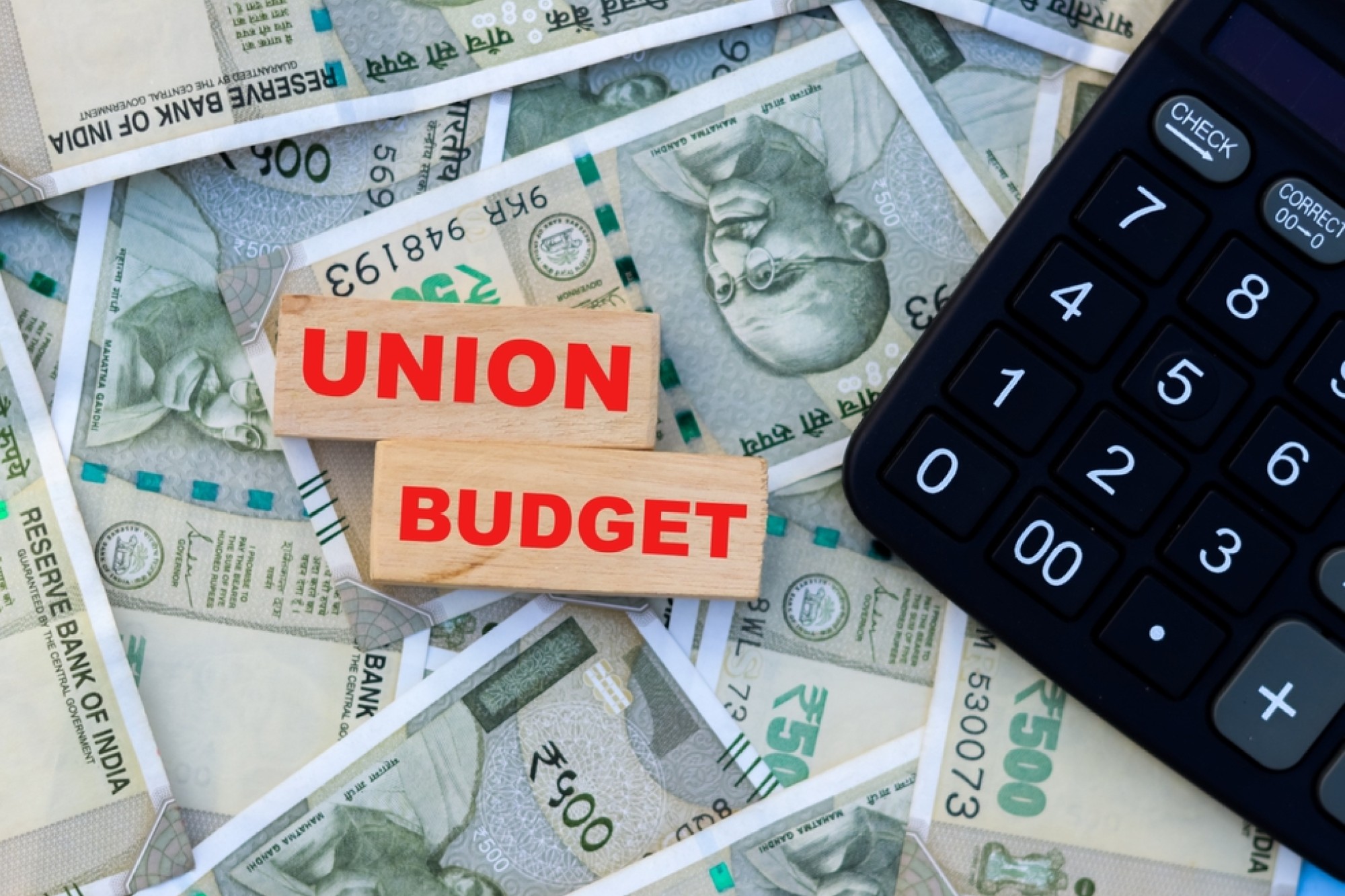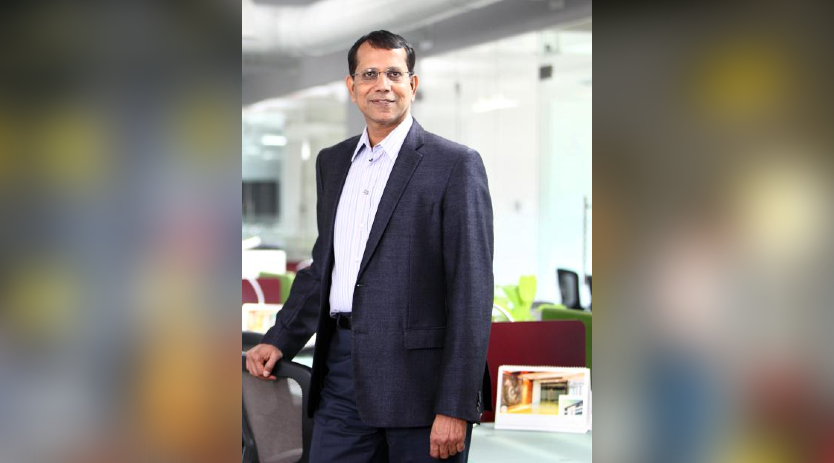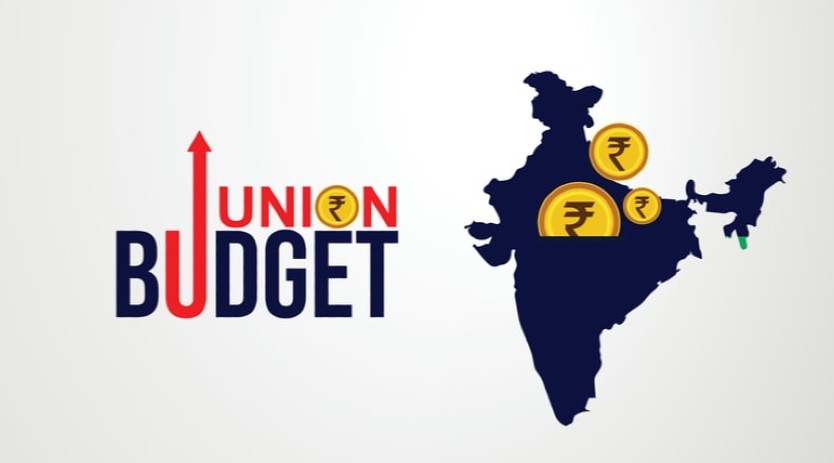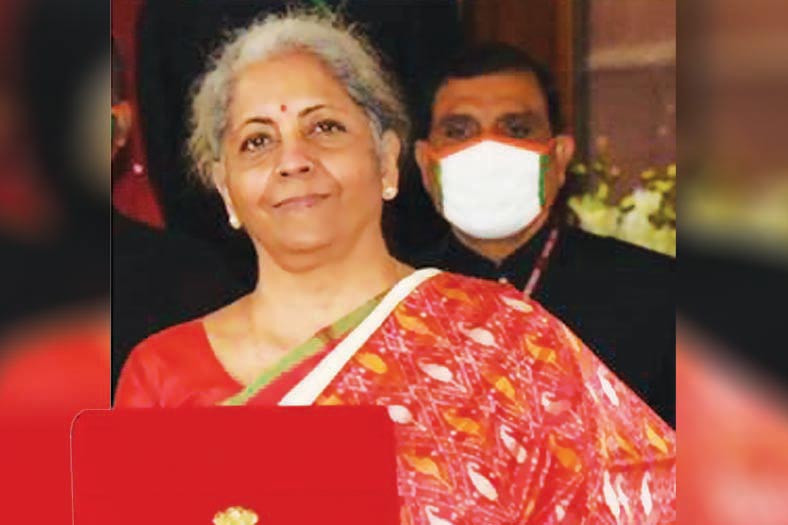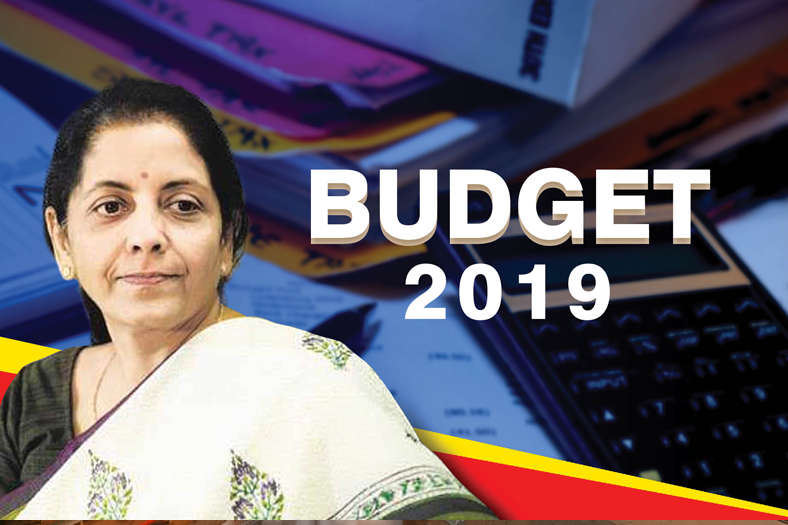Budget 2024 anchors the manufacturing sector for Viksit Bharat Vision
By OEM Update Editorial July 24, 2024 12:52 pm IST
Finance Minister Nirmala Sitharaman presented her seventh consecutive Budget in Parliament. For the pursuit of ‘Viksit Bharat’, the budget envisages sustained efforts on 9 priorities for generating ample opportunities for all.
Smt. Sitharaman focuses on employment, skilling, MSMEs, and the middle class in this budget. She announced the Prime Minister’s package of 5 schemes and initiatives to facilitate employment, skilling and other opportunities for 4.1 crore youth over 5 years with a central outlay of ₹2 lakh crore. This year, ₹1.48 lakh crore has been allocated for education, employment and skilling.
In line with the strategy set out in the interim budget, this budget envisages sustained efforts on the following 9 priorities for generating ample opportunities for all.
- Productivity and Resilience in Agriculture
- Employment & Skilling
- Inclusive Human Resource Development and Social Justice
- Manufacturing & Services
- Urban Development
- Energy Security
- Infrastructure
- Innovation, Research & Development and
- Next Generation Reforms.
PM Narendra Modi remarks, “Budget for Viksit Bharat ensures inclusive growth, benefiting every segment of society and paving the way for a developed India. The government has announced the Employment Linked Incentive scheme. This will create crores of new jobs. This Budget brings a new scale to education and skill development. Today’s budget will act as a catalyst in making India the third largest economic power in the world and will lay a solid foundation for a developed India.”
Asserting the commitment to make India the manufacturing hub of the world, the Prime Minister emphasised the links of MSME with the middle class of the country and its employment potential for the poor segment. To create big strength for small industries, the Prime Minister informed about the new scheme announced in the Budget that will increase the ease of credit for MSMEs. The announcements in the Budget will take manufacturing and exports to every district. He said, “E-commerce, export hubs and food quality testing will give new momentum to the One District-One Product programme.”
The Prime Minister underlined that the Union Budget 2024-25 brings numerous opportunities for India’s startup and innovation ecosystem. He gave examples of a one thousand crore rupees corpus fund to vitalise the space economy and the abolition of the angel tax.
The Union Budget offers a strategic roadmap to consolidate India’s economic gains and propel it towards new heights. S. Sunil Kumar, Country President of Henkel India shares that with a significant allocation of Rs 11.11 lakh crore towards capital expenditure for FY 2024-25, the government is paving the way for robust infrastructure development and sustainable economic growth in India. Over the next five years, the focus on large-scale projects has the potential to transform the economic landscape, reduce logistical costs, and improve the efficiency of transportation networks. It is also promising to see the government taking measures to boost job creation in the manufacturing sector, a key contributor to the country’s GDP.
Allocating funds equivalent to 3.4% of India’s GDP for infrastructure development is a substantial boost for private sector growth. Additionally, the introduction of a new market-based financing product is a commendable initiative, further enhancing the potential for robust infrastructure expansion.
Support for the promotion of MSME
For MSMEs in the manufacturing sector, the finance minister proposed a credit guarantee scheme for facilitating term loans to MSMEs for the purchase of machinery and equipment without collateral or a third-party guarantee. Sitharaman said that the scheme will operate on the pooling of credit risks of such MSMEs. Giving more details, the Union Finance Minister said that a separately constituted self-financing guarantee fund will provide each applicant with a guarantee cover of up to ₹100 crore, while the loan amount may be higher. The borrower will have to provide an upfront guarantee fee and an annual guarantee fee on the reduced loan balance.
PSBs to develop an assessment model for MSMEs via a new, independent, and in-house mechanism, Sitharaman proposed that public sector banks (PSBs) build their in-house capability to assess MSMEs for credit instead of relying on external assessment. They will also take the lead in developing or developing a new credit assessment model based on the scoring of the digital footprints of MSMEs in the economy. “This is expected to be a significant improvement over the traditional assessment of credit eligibility based only on asset or turnover criteria. That will also cover MSMEs without a formal accounting system,” stated the Union Finance Minister.
A credit support fund is a new mechanism for facilitating the continuation of bank credit to MSMEs during their stress period. While being in the ‘special mention account’ (SMA) stage for reasons beyond their control, MSMEs need credit to continue their business and to avoid getting into the Non-Performing Assets (NPA) stage. Credit availability will be supported through a guarantee from a government-promoted fund, as proposed by Smt. Sitharaman.
SIDBI will open new branches to expand its reach to serve all major MSME clusters within 3 years and provide direct credit to them. With the opening of 24 such branches this year, the service coverage will expand to 168 out of 242 major clusters, Smt. Sitharaman stated.
Sitharaman proposed a new MSME food irradiation, quality, and safety testing programme where financial support for setting up 50 multi-product food irradiation units in the MSME sector will be provided. The setting up of 100 food quality and safety testing labs with NABL accreditation will be facilitated.
To enable e-commerce export hubs for MSMEs and traditional artisans to sell their products in international markets, the Union Finance Minister proposed that e-commerce export hubs be set up in public-private partnership (PPP) mode. These hubs, under a seamless regulatory and logistic framework, will facilitate trade and export-related services under one roof, the Union Finance Minister stated.
CRISIL in the MSME sector in India is estimated to have a significant funding shortage of ₹ 20–25 lakh crore. Banks account for 75 per cent of lending in this segment. Public sector banks will do well to set up in-house, technology-driven underwriting capacity to serve new borrowers and bring them into the formal credit fold. – CRISIL
Sameer Jain, Managing Director at Primus Partners, said, “MSMEs consume approximately 50 per cent of the nation’s power needs and generate over 75 per cent of GHG emissions. While the budget has committed support to MSMEs to grow and compete globally, additional support is required for the greening of the MSME sector, including easier access to climate financing.”
Automotive
The Indian Automobile Industry welcomes the continued emphasis on economic growth with several announcements especially the strong fiscal support for infrastructure in the next 5 years. Vinod Aggarwal, President, SIAM and MD & CEO, VECV, on Union Budget 2024-25 shares, “The announcements such as liberal allocation for rural development and infrastructure of Rs 2.66 Lakh crores is a welcome step that will boost the rural economy. SIAM also welcomes several proposals in the budget such as measures for skilling and upskilling support to manufacturing and employment generation and support to auto sector MSMEs. Exemption of Customs Duty on import of Lithium, Cobalt and other rare minerals and extension of concessional Customs Duty on Li-Ion Cells till March 2026 is an aid. The budget also withdraws the Equalisation Levy of 2% on e-transactions. These announcements would continue to propel the growth of the Indian Auto Industry.”
The Union Budget’s focus on increasing women’s workforce participation and youth skilling will address key barriers women face in the workforce, and promote gender equality and economic empowerment. The youth skilling initiative is a forward-thinking move that will enhance workforce skills and employability, driving industry growth and boosting the gig economy, particularly by increasing two-wheeler and three-wheeler sales beyond metropolitan areas. Rashi Agarwal, Co-Founder and CBO, of Zypp Electric was anticipating announcements on the FAME-III policy and special incentives for the EV sector, which weren’t part of this budget.
Ravi Machani, Co-Founder Investor, Tresa Motors adds, “With the growing demand for expertise in areas like battery technology and power electronics, the budget’s focus on upskilling programs and industry-education collaboration is crucial in bridging the skills gap. Skilled workers are essential for the EV industry’s growth. The government’s initiative to upskill students over the next five years will ensure a steady supply of talented professionals, driving innovation and sustainability in the EV sector.”
The budget allocation for semiconductor and display manufacturing is set to grow by more than double, increasing from ₹3000 crore to ₹6903 crore. Krishna Vij, Business Head- IT Staffing, TeamLease Digital shares, “The increased funding will foster innovation, support the establishment of advanced manufacturing facilities, and reduce reliance on imports. It will also attract global investments, create high-tech jobs, and position India as a key player in the global semiconductor supply chain, ultimately enhancing the country’s technological self-reliance and competitiveness.”Electronics
The budget reduced the Basic Customs Duty (BCD) on mobile phones and chargers to 15% from 20%, a significant step that will lower production costs, making Indian-made mobile devices more competitive. Kannav Thukral, Managing Director, BlackZone Mobiles adds, “This move will enable the industry to reach a broader audience, and the reduced taxes will lead to higher profits and increased production. The enhanced credit guarantee scheme and the facilitation of term loans for machinery purchases are set to invigorate the manufacturing sector. The tailored package for technology support and the new bank credit mechanism will enhance digital capabilities and financial stability for new businesses and investments. By unlocking working capital and expanding the Mudra loan to 20 lakh, the government is empowering manufacturers to scale up operations without the burden of collateral. These measures will drive growth and reinforce India’s position as a global manufacturing hub for mobile devices.”
Technology
The budget announcement on making data and statistics available will help facilitate access to data, which would also come in handy for AI development. Rajnish Gupta, Partner, Tax and Economic Policy Group, EY India contributes that the operationalisation of the Rs 100,000 Crore innovation fund would help entrepreneurs and businesses with R&D-related investments that may also relate to AI. The Digital Public Infrastructure is proposed to cover sectors like credit, education, healthcare, law and order, etc. This could help in the development of use cases for AI, as algorithms could be used by the proposed Digital Public Infrastructure.”
Sunil Mathur, Managing Director and Chief Executive Officer from Siemens Limited welcomes the Government’s consistent approach towards Fiscal consolidation, supporting Capex in Infrastructure by reconfirming the allocation of Rs.11.11 lakh crore in the Budget as also additional allocations towards improving Urban and Rural Infrastructure.
Anuj Jhunjhunwala, the CEO of JJG Machining Group highlights the aviation union budget of 2024 is a landmark for the manufacturing industry, addressing critical supply concerns for labour, land, and logistics. Establishing 100 industrial zones and 12 major industrial parks near key cities will greatly ease land availability, complemented by digitised land records facilitating purchases outside these zones.
Prof Sanket Goel, Dean, of Research and Innovation (Institute-wide) and Professor, BITS Pilani Hyderabad Campus adds that there is immense potential for scientific progress in space technology in India which the government has rightly recognised by allocating ₹ 1,000 crore for space research.”
Job creation, education, skill development
The 2024 budget focuses on job creation, education, skill development and building a more inclusive workforce. The provision of Rs 1.48 lakh crore made to support education, employment, and skilling demonstrates commitment to workforce development. Schemes enabling industries to create new jobs, financial support for higher education loans, ITI upgrades, and internship schemes will all enable a higher-skilled and employable workforce.
Rajat Mahajan, Partner, Deloitte India, said on budget, “The government is incentivising job creation in the manufacturing sector, which is likely to impact 30 lakh youth. We expect that these additional skilled workers with disposable income in hand will help drive growth in the automotive industry in the 2-wheeler segment.”
B. Santhanam, CEO of Saint-Gobain India and APAC, reacting to the budget says, “It marks a significant stride towards a brighter future for India. The government’s focus on job creation, consumption, and women’s empowerment is commendable. The financial support and completion of key projects, such as the Polavaram Irrigation Project in Andhra Pradesh, along with investments in the Vishakhapatnam-Chennai Industrial Corridor, and major announcements for the North and West region will boost infrastructure, and economy and ensure food security. The emphasis on ‘Make in India’ further strengthens domestic manufacturing and promotes self-reliance. Investments in industrial corridors, MSME credit, and PM Awas Yojana Urban 2.0 will drive growth. The budget balances economic growth, social welfare, and innovation, charting a robust path for India’s future.
Addressing the talent and skill shortage across key industries has been a long-standing concern. This budget aims to close the gap and foster a more inclusive workforce, particularly for women and persons with disabilities (PWD) as shared by Neeti Sharma, CEO, of TeamLease Digital.
The Finance Minister’s new scheme to boost job creation in the manufacturing sector by linking it to the employment of first-time workers is a significant step forward. Munira Loliwala, VP- of Strategy and Growth, at TeamLease Digital shares that by offering incentives for EPFO contributions to both employees and employers for the first four years, this initiative is expected to benefit 3 million young people and create additional employment across all sectors. Additionally, the PM scheme to provide internship opportunities in 500 top companies to 1 crore youth over the next five years will further enhance skill development.
Public Private Partnership
Vivek Lohia, Managing Director, Jupiter Wagons Limited shares, “Finance Minister Nirmala Sitharaman’s emphasis on public-private partnerships is a transformative step for the infrastructure sector. The simplification of FDI norms to facilitate inflows is a genuine effort by the government to attract and sustain private investment in India. By prioritising and promoting Foreign Direct Investment, the government is creating a conducive environment for investors. By fostering collaboration between the government and private players, we can leverage the strengths of both sectors to enhance project execution, innovation, and efficiency. This approach promises accelerated development and ensures sustainable and inclusive infrastructural growth.”
Sustainability
This budget is a step towards India’s energy independence and a cleaner future. By prioritising energy security and announcing a dedicated policy on energy transition, the government commits to achieving our Nationally Determined Contributions (NDC) goals. Ashish Bhandari, Managing Director & CEO at Thermax adds, “The focus on job creation, sustainability, and promoting renewable energy is commendable. Solar energy will be key in achieving our energy transition goals, with initiatives like the PM Surya Ghar Muft Bijli Yojana enabling energy access to households while reducing pressures on energy grids. Additionally, financial assistance to MSMEs for transitioning to clean energy and implementing energy efficiency measures is a visionary approach. This budget lays a strong foundation for bridging the energy availability gap and advancing energy sustainability”.
The Bharat Small Reactor (BSR) and Bharat Small Modular Reactor (BSMR) represent groundbreaking opportunities in India’s nuclear energy landscape. These innovative projects have immense potential to supply energy to the nation. Shivanshu Thaplyal, Partner, Khaitan & Co above-mentioned, “With the right government incentives and support, these initiatives could usher in a new era of sustainable and reliable power. This is a promising step towards meeting India’s growing energy demands.”
Establishing a critical mineral mission for domestic exploration is a positive step forward. While capacity building and technological advancements are crucial areas of focus, the potential outcomes of partnerships with countries like Australia and the Mineral Security Partnership (MSP) regime add an exciting dimension. This initiative promises to bolster India’s strategic mineral reserves and drive innovation in the sector.
The Union Budget 2024 lays a roadmap for India’s commitment to inclusive growth, focusing on employment, skilling, MSMEs, and infrastructure, fostering robust economic development and positioning India as a global manufacturing hub while promoting sustainability and innovation.
Cookie Consent
We use cookies to personalize your experience. By continuing to visit this website you agree to our Terms & Conditions, Privacy Policy and Cookie Policy.



